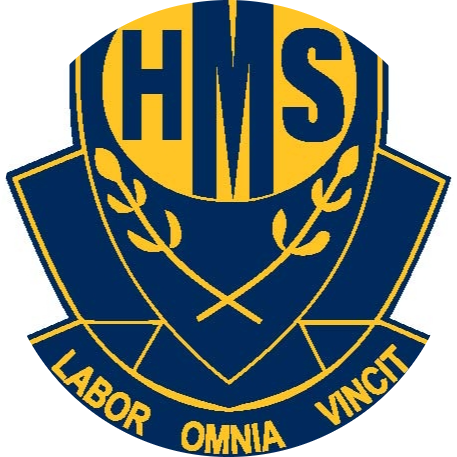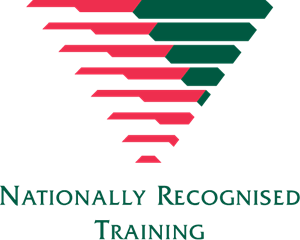Graduates of the Project Planning Breakthrough courses can now gain a BSB40920 Certificate IV in Project Management qualifications.
We can complete this with you and your organisation by means of:
- Recognition of Prior Learning through an evidence portfolio and an assessment. We provide each candidate an assessment book which outlines the type of evidence they need to provide in order to show that they are competent in each area. Coaching is provided via organised phone and WebEx meeting throughout the process. Students then have a workplace assessment linked to their evidence portfolio.
- A face to face method which is offered in flexible options. This can be done either as a week, or over a number of days across several months, evening classes, or weekend delivery. These flexible solutions will offer you and your organisation the opportunity to complete the programs with support from the dedicated Facilitator and assessor of these programs who will work with your team to ensure the practical application and knowledge, with the theory and skills are met for you.
Priority Management is also globally recognised training provider with the Project Management Institute, graduates of both Priority Management’s Working Smart with Microsoft Project and Project Planning Breakthroughs courses can obtain Professional Development Units.
| Project Planning Breakthrough | 1161-PMB00020 | 21PDU’s |
| Working Smart with Microsoft Project | 1161–TN061161 | 7PDU’s |
BSB40920 CERTIFICATE IV Project Management Practice is suitable for people who are involved in projects but don’t manage the project. Assessment via RPL and RCC is suitable for those who have experience in working on or managing a project.
Upcoming Accredited Training Course Dates
Choose from the dates below to secure your enrolment in one of our upcoming classes


"As a school Principal, I greatly value practical training that delivers immediate and measurable improvements in productivity. The "Working Sm@rt with Microsoft Outlook" workshop facilitated by Priority Management exceeded all expectations."


“I recently had the privilege of taking a refresher course on Microsoft Outlook, and it was nothing short of transformative. It was a wake-up call for me, realizing that I had been using Outlook for years, yet there was so much more to learn and exploit.”


“It changed my life really. I felt like I’d been baptized at the end- I really felt so much lighter and freer! I’m in control of my life, actually I can, I can work the way I want to work.”


“Enjoyed the session and got a few great tips and better ideas on managing emails and tasks thanks so much.”


“Working with Priority Management as an organisation, [I’ve learned] that it’s not actually about the computer programs. It’s about the way in which you use those to work together.”


“Went into the course thinking I would learn a few tips on using MO more efficiently, came out with a breakthrough on how I could be the high performer I want to be and still have a life.”


“They’re always there to support you and they’ve even made the Most staunchly paper driven people challenge what they do and find a way to be paper light, if not paper gone.”



“Outlook to me was just a repository for emails, but now it is transformed into a powerful automated planning tool. Thank you Mary! I also like how you consider typography when setting up the layout and solution.”


“Such a great course. Thoroughly enjoyed the training and learned so many new things that I know will benefit both myself and the organisation.”


“I had no idea of how much I didn’t know. This is a game changer for efficiency and organisation.”


“The Australian Chamber Orchestra has engaged Priority for 15 years to conduct Outlook training, which is considered an important component of our induction process to assist with productivity. It’s always a pleasure to liaise with Priority Management. As a participant, I found the online workshop to be informative, educational, fun, and engaging.”


“Thanks for putting on such amazing training sessions for our employees over the past 2 weeks, we have had incredible feedback about how valuable they found the Outlook training and how great a facilitator Dani is. One employee reached out saying it was the best training she has ever done, which is a testament to how good the content and facilitators are!”



“Mary was very knowledgeable on the material and able to answer any queries quickly and effectively, there are many strategies that I took from the training that will allow me to build on previous knowledge and be more effective working within Outlook.”


“A HUGE thank you for the OneNote training that I completed. Having completed courses previously, I was expecting similar basic content and a struggle to say engaged. I was pleasantly surprised by Marys knowledge and ability to engage all attendees from beginners through to more advanced users, covering a range of skills, including more advanced use scenarios. I learnt a lot and have already applied many of the skills that I learnt.”


"But also the programs were fabulous because they are really practical. It’s not just here’s how you use it. It’s really about how you embed it into your everyday work life which is what I like about it."


"Thank you Jackie so much again for putting together such an insightful presentation. As I mentioned, the feedback so far has been really positive and a few people I have spoken to in the office today have already made some tweaks to their default settings. Your presentation skills were some of the best I’ve seen, and I was impressed with how you were able to navigate between screens despite the technical challenges. Thank you again!"


Learn more about BSB40920 Certificate IV in Project Management Practice
Overview
Audience
Format
What's Included
UNIT 1: BSBPMG420 Apply project scope-management techniques
Element 1.1 – Contribute to defining project scope
Element 1.2 – Apply project scope controls
Element 1.3 – Contribute to review of scope controls
UNIT 2: BSBPMG421 Apply project-time-management techniques
Element 2.1 – Assist in the development of project schedule
Element 2.2 – Maintain project schedule
Element 2.3 – Participate in assessing time-management outcomes
UNIT 3: BSBPMG422 Apply project-quality-management techniques
Element 3.1 – Contribute to project quality planning
Element 3.2 – Apply quality policies and procedures
Element 3.3 – Contribute to project continuous improvement process
UNIT 4: BSBPMG423 Apply project cost-management techniques
Element 4.1 – Assist in developing the project budget
Element 4.2 – Monitor project costs
Element 4.3 – Contribute to cost finalisation
UNIT 5: BSBPMG424 Apply project human resource management approaches
Element 5.1 – Assist in determining human resource requirements
Element 5.2 – Contribute to establishing and maintaining productive team relationships
Element 5.3 – Assist with human resource monitoring
Element 5.4 – Contribute to evaluating human resource practices
UNIT 6: BSBPMG425 Apply project information management and communication techniques
Element 6.1 – Contribute to communications planning
Element 6.2 – Conduct information-management activities
Element 6.3 – Communicate project information
Element 6.4 – Contribute to assessing effectiveness of communication
UNIT 7: BSBPMG426 Apply project risk-management techniques
Element 7.1 – Assist with risk analysis and planning
Element 7.2 – Perform risk-control activities
Element 7.3 – Contribute to assessing risk-management outcomes
UNIT 8: BSBPMG427 Apply project procurement procedures
Element 8.1 – Assist with procurement planning
Element 8.2 – Contribute to supplier selection process
Element 8.3 – Conduct procurement activities
Element 8.4 – Assist in finalising procurement activities
UNIT 9: BSBPMG429 Apply project stakeholder engagement techniques
Element 9.1 – Assist in identifying and addressing stakeholder interests
Element 9.2 – Actively participate in stakeholder engagement
Element 9.3 – Assist stakeholder communications
BSB40920 CERTIFICATE IV Project Management Practice is suitable for people who are involved in projects but don’t manage the project. Assessment via RPL and RCC is suitable for those who have experience in working on or managing a project.This qualification is an intermediate level qualification for people required to supervise components of a project. It is aimed at:
- Learners with some project experience
- Workers with project experience who are now being asked to supervise components of projects and liaise directly with clerical staff
- Administrators who need to monitor and report on projects.
This course is intended to provide participants with a range of knowledge, and skills to perform the following functions associated with Project Management, including:
- Project team members
- Learners
- Executive/Administrative assistants
- Project support members
- Project records assistants
- Project assistant
- Assist in Project Procurement, Schedules, Contract Management, etc.
Preferred pathways for candidates considering this qualification include:
- A preference to become involved in Project-related activity
- Vocational experience in project-based work.
- Work experience in operational work that can be applied to Project work.
- 10927NAT Certificate III in Project Administration
After achieving this qualification candidates may undertake the following training in order to progress into project management:
- BSB50820 Diploma of Project Management
When undertaking this course, learners should have access to a relevant workplace role, literacy and numeracy levels at least equivalent to level 3 of the Australian core skills framework (ACSF). They should be able to work independently; to investigate, identify and evaluate knowledge; and to learn in a team environment, including some mentoring of others.
Further information on ACSF levels can be found at https://www.employment.gov.au/australian-core-skills-framework
Learning support is available as required. Please contact Priority Management to discuss your needs.
The format of this qualification is a blend of face to face training, with coaching support, Webinar sessions and students gathering evidence from day to day work over a period of up to 2 years. Supervised hours 50 hours of face-to-face training comprising:
- orientation meeting – 2 hours
- Project Planning Breakthroughs course (PPB) – 24 hours over three days
- 8 x 2 Hour Webinars per year = 16 hours per year
Optional: additional courses in Negotiating (16 hours), Working Sm@rt with Microsoft Outlook course (WSMO) – (6 hours), Working Sm@rt with Microsoft Project course (WSMSP) – (8 hours), Microsoft Excel (8 hours), Influencing (8 hours), Working Sm@rt in Microsoft Teams (8 hours), Microsoft OneNote (5 hours)
14 hours per week at the workplace working on live projects and gathering evidence – 44 weeks = 616 hours per year
8 x 2-hour webinars per year = 16 hours per year (2 years)
Consultation with trainer/assessor – 8 hours per month (approx.)
Workplace/On the Job Training:
- Supervised work. 14 Hours per week working on live projects and gathering evidence – 44 weeks = 616 hours
- Unsupervised hours. 12 Hours per week working on live projects and gathering evidence – 44 weeks = 528 hours
Note: Total supervised and unsupervised hours may vary depending on students existing skills and evidence or evidence of recognition of prior learning.
- Certificate IV in project management practice Workbook, Training and Assessment.
- Project Planning Breakthroughs
- Microsoft Project Fundamentals
Dont have your own laptop?
We have modern HP laptops available for hire!
HP EliteBook Touchscreen Tablet laptops (with mouse) (11 available)
- Rental cost to client $95+GST per laptop + transport
- Running Windows 11
- Running Office 365
- Word
- Excel
- PowerPoint
- Outlook
- OneNote
- Added only if required - MS Project, MS Visio


Organise with one of our team when making your booking or get in touch with us here
Submit an Enquiry



Priority Management is a Recognised Training Organisation (RTO number: 90911) and issues nationally recognised qualifications and statements of attainment.
Lead your team to success with industry-leading project management training
Achieve your goals, get more done and see your team thrive with our advanced project management short courses and qualifications.
Enrol TodayWe Pride Ourselves
We have been 40 years in Business and with over 2.2 Million participants and a lifetime membership, we are super proud of Priority Management.

















